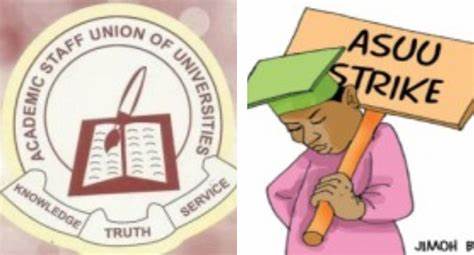ASUU Threatens Nationwide Strike Over Unfulfilled 2009 Agreement with FG
ASUU Threatens Nationwide Strike Over Unfulfilled 2009 Agreement with FG
By Achimi muktar
Nigerian students may soon face yet another disruption in their academic calendar as the Academic Staff Union of Universities (ASUU) has issued a stern warning to the Federal Government: honour the 2009 agreement or brace for another nationwide strike.
Addressing the press in Abuja on Friday, ASUU President, Chris Piwuna, didn’t mince words. He declared that the union has run out of patience over the government’s repeated failure to fulfil its end of a bargain struck 14 years ago—a bargain meant to transform public universities across Nigeria.
“There are nine lingering issues, all unresolved,” Piwuna said, highlighting a deadlock that has persisted since 2017 when renegotiation efforts stalled.
Broken Promises and Withheld Salaries
Among ASUU’s grievances are the withheld salaries from the 2022 strike, unpaid allowances, and ongoing friction with the controversial Integrated Payroll and Personnel Information System (IPPIS). While the government had promised to inject ₦150 billion into public universities and revise irregular allowances by 2026, not a single kobo has landed where it matters.
“Our members are demoralised. We’ve waited long enough,” the ASUU president added.
State Universities Left in the Cold
ASUU didn’t just stop at federal institutions. Piwuna raised the alarm over what he called “systemic marginalisation” of ASUU members in state-owned universities like Kogi State University and Lagos State University (LASU). He accused the states of victimisation, job insecurity, and outright salary denial.
In his words:
“University campuses are turning into battlegrounds—not for knowledge—but for political and economic power plays. That is unacceptable.”
A Call for a National Reset
To halt the looming crisis, ASUU is calling for a National Education Summit to revisit the issues of funding, university autonomy, and staff welfare.
“Education is the engine of national development. If we destroy it, we destroy our future,” Piwuna warned.
He emphasized ASUU’s willingness to engage in constructive dialogue but made it clear: continued violations of academic rights will no longer be tolerated.
Why This Matters
The now-legendary 2009 ASUU/FG agreement was supposed to be a turning point for Nigeria’s education system. It promised better funding, improved working conditions for lecturers, and infrastructure upgrades. But instead, it has become the blueprint for an endless cycle of broken promises and disruptive strikes.
Since then, Nigeria has witnessed:
A 5-month strike in 2010
A 59-day strike in 2011
A 5.5-month strike in 2013
A warning strike in 2014
Strikes in 2017, 2018, and 2020, all tied to the same unmet demands
And most recently, the February 2022 strike, which dragged on for over five months
What’s at Stake
For students, this means another pause in their academic journey. For parents, it means further financial and emotional stress. For Nigeria, it’s another strike against progress.
Unless the Federal Government acts swiftly, Nigeria’s university campuses could fall silent once again—not from a lack of students, but from the cries of exhausted lecturers demanding justice.


















